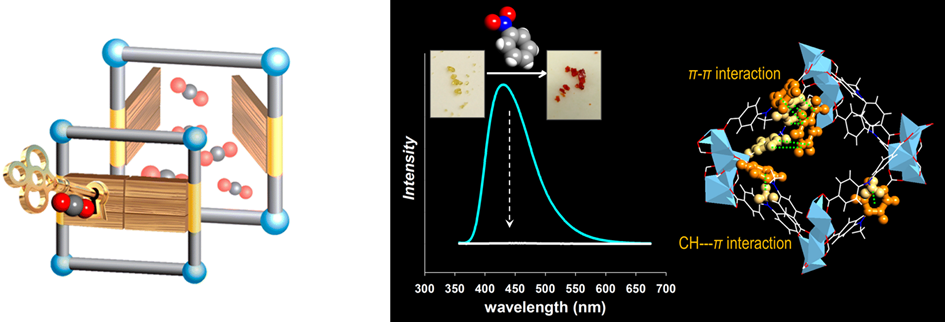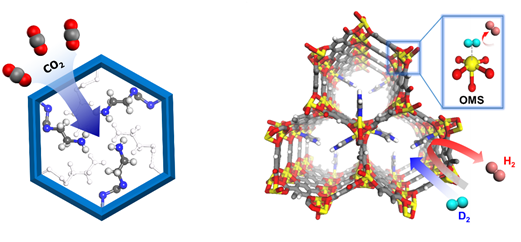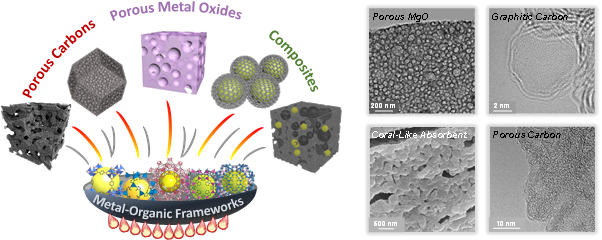Crystal Engineering of Metal-Organic Frameworks for Molecular Sensing and Catalytic Reaction
In metal-organic frameworks (MOFs), the diversity of building units (metal nodes and organic ligands) allows them to have versatile geometric and electronic structures and surface functionalities. Thus, MOFs are potentially viable candidates in adsorptive, molecular sensing, optic, and catalytic applications. Our group has adopted crystal engineering as the interplay of chemistry and crystallography, to understand the intermolecular interactions and molecular movement upon stimuli exerted in a crystalline phase. Based on such understanding, we design new MOFs with desired structures and properties, particularly suitable for molecular sensing and catalytic reactions.

Tailoring Metal-Organic Frameworks for Gas Separation and Storage
Gas separation and storage in porous materials is one of the most critical technologies in modern chemical industry. Particularly, metal-organic frameworks (MOFs) stand out as the most promising materials, owing to the combination of remarkable porosity and tunability of surface properties and functions. Various strategies have been suggested to increase the efficiency and capacity in selective gas adsorption by judicious choice of molecular building blocks and post-modification. We are now developing the state-of-the-art MOF system that can cost- and energy-efficiently separate gas mixtures from the most common gases (e.g., CO2/N2) to the very challenging isotopic gas molecules (e.g., H2/D2).

Conversion of Metal-Organic Frameworks Toward Synthesis of Functional Nanomaterials
Nanostructured materials such as porous metal oxides, metal nanoparticles, porous carbons, and their composites have been intensively studied due to their applications, including energy conversion and storage devices, catalysis, and gas storage. Metal-organic frameworks (MOFs) and coordination polymers (CPs) emerged as new precursors for these nanomaterials because they contain both organic and inorganic species that can play parallel roles as both a template and a precursor. Thermal conversions of MOFs offer a promising toolbox for synthesizing functional nanomaterials that are difficult to obtain using conventional methods.


